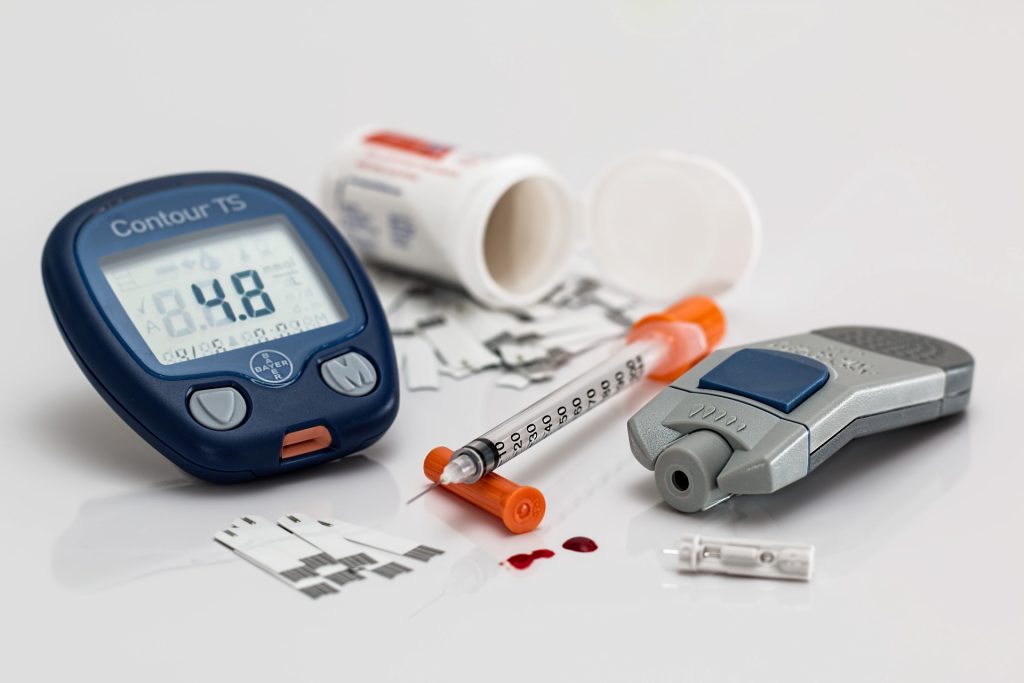There is currently no cure for diabetes, but it can be managed effectively through a combination of medications, lifestyle changes, and ongoing medical care. Although diabetes cannot be cured, it can be managed effectively to help reduce the risk of complications, such as heart disease, nerve damage, and kidney damage. It is important for people with diabetes to work closely with their healthcare team to develop a management plan that meets their individual needs. Is Diabetes Curable?
Type 1 diabetes is an autoimmune disease in which the body’s immune system attacks and destroys the cells that produce insulin, a hormone that regulates blood sugar levels. Type 1 diabetes is not curable, but it can be managed through daily insulin injections or the use of an insulin pump.
Type 2 diabetes is a chronic condition that is characterized by high blood sugar levels due to the body’s inability to use insulin effectively. Type 2 diabetes is often preventable through lifestyle changes, such as maintaining a healthy diet and regular physical activity. In some cases, medication may also be necessary to manage blood sugar levels.
Gestational diabetes is a form of diabetes that occurs during pregnancy and usually disappears after the baby is born. It can be managed through diet, exercise, and medication, if necessary.
Best Way to Keep Away From Diabetes
There are several steps that you can take to reduce your risk of developing diabetes:
Maintain a healthy weight: Being overweight or obese increases your risk of developing diabetes. Losing excess weight through a combination of diet and exercise can help reduce your risk.
Eat a healthy diet: A diet rich in fruits, vegetables, and whole grains and low in added sugars and unhealthy fats can help lower your risk of diabetes.
Exercise regularly: Regular physical activity can help you maintain a healthy weight and improve your body’s ability to use insulin. Aim for at least 150 minutes of moderate-intensity exercise or 75 minutes of vigorous-intensity exercise per week.
Don’t smoke: Smoking increases your risk of diabetes and other serious health conditions. If you smoke, consider quitting to reduce your risk.
Manage stress: Chronic stress can increase your risk of developing diabetes. Find healthy ways to manage stress, such as through relaxation techniques, exercise, or talking to a mental health professional.
Get enough sleep: Getting enough sleep is essential for maintaining overall health and can help lower your risk of diabetes. Aim for 7-9 hours of sleep per night.
Following these recommendations can reduce your risk of developing diabetes and improve your overall health. However, it is important to note that genetics and other factors can also play a role in your risk of developing diabetes. If you have a family history of diabetes or are at increased risk, it is important to speak with your healthcare provider about steps you can take to reduce your risk. Is Diabetes Curable?
What Are the Best Medication for Diabetes
There are several medications that can be used to treat diabetes, including:
Insulin: Insulin is a hormone that helps regulate blood sugar levels. It is often used to treat type 1 diabetes, as people with this form of diabetes do not produce insulin naturally. Insulin can be injected or delivered through an insulin pump.
Oral medications: Oral medications, such as metformin, can help lower blood sugar levels by increasing the body’s sensitivity to insulin or decreasing the amount of sugar produced by the liver.
SGLT2 inhibitors: SGLT2 inhibitors work by blocking the reabsorption of glucose in the kidneys, allowing excess glucose to be excreted in the urine.
DPP-4 inhibitors: DPP-4 inhibitors work by increasing the number of incretin hormones in the body, which helps lower blood sugar levels.
GLP-1 agonists: GLP-1 agonists work by increasing the amount of insulin produced by the pancreas and decreasing the amount of sugar produced by the liver.
The specific medication or combination of medications that are best for you will depend on your individual needs and circumstances. It is important to work with your healthcare provider to determine the most appropriate treatment plan for you.
What Are the Best Diet for Diabetes
There is no one “best” diet for diabetes, as individual needs and preferences vary. However, there are some general principles that can be helpful for people with diabetes to follow:
Focus on whole foods: Choose whole, minimally processed foods, such as fruits, vegetables, whole grains, and lean proteins, rather than processed or packaged foods.
Limit added sugars: Foods and drinks, that are high in added sugars can increase blood sugar levels. Try to limit your intake of sweetened beverages and foods, such as soda, fruit juices, and pastries.
Choose healthy fats: Choose healthy sources of fat, such as olive oil, avocado, and nuts, rather than unhealthy sources of fat, such as fried foods and processed snacks.
Eat regular meals: Eating regular, balanced meals can help manage blood sugar levels. Try to eat a variety of foods at each meal and include protein, fiber, and healthy fats.
Consider portion sizes: It is important to pay attention to portion sizes, as eating too much of any type of food can lead to weight gain and higher blood sugar levels. Is Diabetes Curable?
Consult with a healthcare professional or a registered dietitian: A healthcare professional or registered dietitian can help you develop a personalized meal plan that meets your individual needs and goals.
By following these general principles, you can help manage your blood sugar levels and improve your overall health. However, it is important to work with a healthcare professional to determine the best dietary approach for you.
Image by Steve Buissinne from Pixabay

